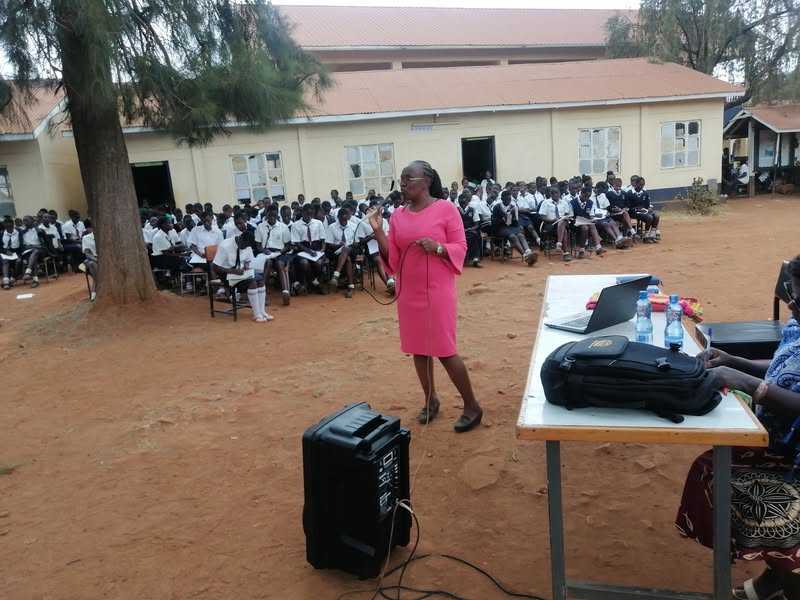When I was growing up in the early 70s all the way to early 80s, children were deemed to belong to the community as whole. As a result, all parents had the moral responsibility and liberty to discipline any child they came across whether they knew the child or not as long as there was display of indiscipline on their part. To add insult to injury, the child or children caught misbehaving would then be reported to the parents who would initiate another round of disciplinary action. Children then, had no say in such matters.
Why were parents so serious with life? What was the big deal with discipline?
When I was growing up, parents took pride in disciplined children. Today, we have many spoilt brats whom we as parents have nurtured then go on as adults to pretend to feign tolerance for yet it is killing some of us inside. No wonder we have baby tantrums all over in public places with people either enjoying the spectacle or pretending to. What is parental discipline anyway? Discipline is the process of teaching our children the difference between acceptable and unacceptable behavior. This was done through positive reinforcement, modeling, loving and supportive family (read community) and sometimes punishment.
Even the good book, my all-time favorite the Bible mentions discipline quite a number of times. It further goes to say in Revelation 3:19, 'As many as I love, I rebuke and chasten.' Hebrews 12: 5-7, 'My son, do not make light of the Lord's discipline, and do not lose heart when he rebukes you, because the Lord disciplines the one he loves, and he chastens everyone he accepts as his son.' My take, if God takes discipline seriously, so should we.
My Personal Challenge
Last week I found myself feeling challenged with disciplining my nephew. As we are all aware, it is not rare to parent the other child in the African set up. Before the modernization we see today, most of us lived in the same house with our step-siblings, cousins, aunties, uncles and so on. Reasons could range from visiting the city, bonding, poverty, children being orphaned amongst others. Even in today's society we have opportunities of parenting the other child through blended family set ups, adoption amongst others.
Back to my challenge, although he is an adolescent, he suddenly started displaying unacceptable behavior e.g. being irresponsible by not brushing his shoes, walking in flooded water with school shoes, watching TV 24/7, refusing to do his homework etc. You can imagine, every day we were in conflict for something he did or omitted to do. It wasn't easy, and at some point I even began questioning my parenting skills. Am I being too petty? Am I exhibiting the old school syndrome? Am I expecting too much from him? Could he be experiencing a problem I have overlooked? It was so serious that I decided to see a personal therapist, yeah, you got me right.
Should You Discipline Another Parent's Child?
Question is, should you discipline another parent's child in this age and generation? Parents out there, how many times do we witness other children abuse and behave aggressively towards each other and we turn a blind eye? After all, my child is not involved, we justify, right? But is it the right thing to do?
A disclaimer: discipline doesn't mean brutality like the cases we keep hearing in the media in Kenya, where children are excessively beaten, hurt until they seek medication, or are traumatized no! Children have rights which must be respected at all times by all people. The Bible cautions us that as much as discipline is a prerequisite for training towards righteousness, it should come from a place of love.
Some Tips I Have Learnt On How To Parent The Other Child
- During discipline sessions, use a normal voice to express your displeasure. Give a warning if the misbehavior continues and take disciplinary action.
- I believe it is possible to reason with children by making them understand why they should or should not do a certain thing and what are the consequences. Let them know choices have consequences and they are solely responsible for the choices they make in life.
- Try as much as possible to speak in one voice with the parents of the other child if they are in the picture.
- Don't discipline the other child if the parent is present. Let the parent take the responsibility.
- Be assertive and lay ground rules for your home since you are in charge. This applies if the other child is residing in your house.
- When a behavioral problem(s) present itself you must intervene and nip it in the bud before it is too late. The children will thank you in later years.
- For most African families we have unwritten rules that every member is supposed to know and work with. Personally, I think we need to improve on the communication aspect for better results instead of working on assumptions. Ever wondered why we get shocked with a certain behavior when we exclaim, 'Is that something that one needs to be told! It is common sense'.
- Be careful to treat all children the same in terms of discipline, love and providence. It is doable. Remember the children do not understand why you may want to prioritize anyone your own children's needs over theirs. For example, if you took them in because of poverty ensure they all get their basic needs. If you need to have leisure activities and you feel strained, explain why there is differentiation and offer an acceptable alternative so as not to make them feel left out. Remember the other child may be feeling out of place already without the differentiation, affecting self-esteem which may also result in indiscipline.
- Last but not least, talk to them, find out how their day was, be their friend and open up lines of communication. The more you understand the other child, the easier it is to know how to handle them.
Please feel free to share your opinions and experience on the topic.
← Back to Home
